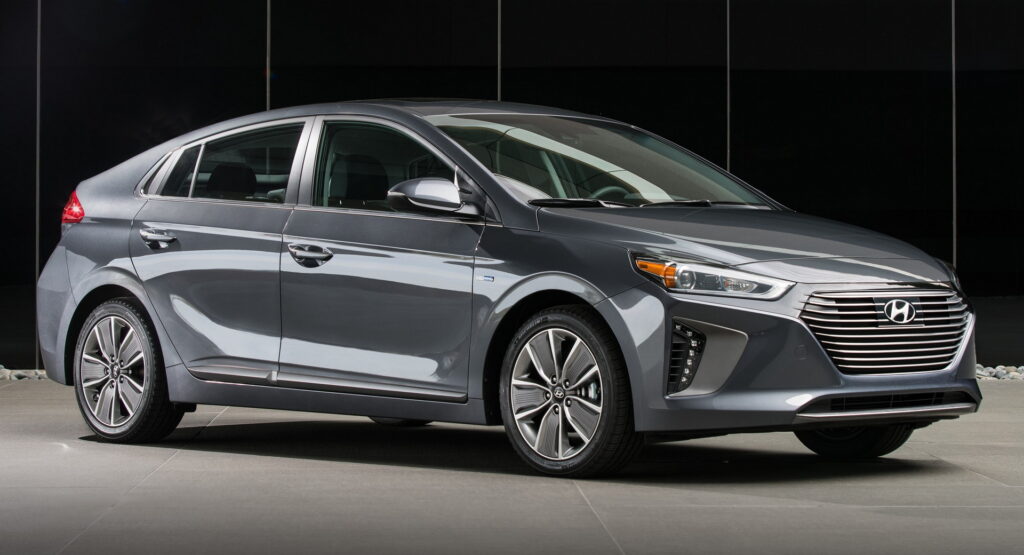Hyundai is re-recalling 10,575 hybrid and plug-in hybrid vehicles because of an issue that was supposed to have been fixed.
The problems started in March 2018, when Hyundai received a report of heat damage on the rear seat of a 2017 Kia Niro sold in Korea. The automaker began an investigation and in October 2018 decided to conduct a voluntary safety recall of 10,575 2017-2018 Hyundai Ioniq Hybrid and Plug-In Hybrid models in the U.S.
The issue stemmed from the power relay assembly, which is located under the rear seat. Through its investigation, Hyundai realized the part was connected too loosely. That was, in turn, leading to increased electrical resistance because of the loose contact between the main relay terminals. That could cause high heat and increased the risk of a fire in the vehicle.
Read Also: BMW Recalls Nearly 1M Cars, Most For A 3rd Time To Cure Engine Fire Risk
The good news was that the problematic part had been made by a supplier that the automaker had stopped using. It just had to recall the vehicles that were already in the field, replace the relays, and everything would be alright.
Unfortunately, it didn’t turn out to be that easy. In June 2021, Hyundai received a report alleging that a 2017 Ioniq had caught fire after receiving the recall fix. In November and December, it received two more reports of fires from vehicles that had also allegedly received the recall repair.
The automaker investigated two of the vehicles and found that, although both vehicles’ repair history indicated that they had received the new relay (from different dealers no less), both still had the old, problematic part.
In March, Hyundai received two notices of post-remedy fires, and by April it found four more vehicles that had been improperly repaired. Out of the 11 vehicles Hyundai surveyed, a total of nine were found to still have issues related to the relay, though, fortunately, no injuries or deaths were reported.
The automaker did an internal audit and decided to launch another recall. Owners will be asked to bring their vehicles back into the dealer to have the recall work inspected and have the main power relay replaced where necessary.
Just why the vehicles mentioned above had old relays despite apparently having been fixed has not been made clear. What Hyundai is doing to prevent a similar situation from occurring again is not clear either. We have reached out to the automaker for more information on both counts and will update you when we hear back.






